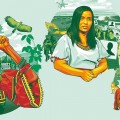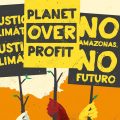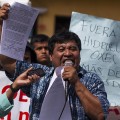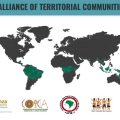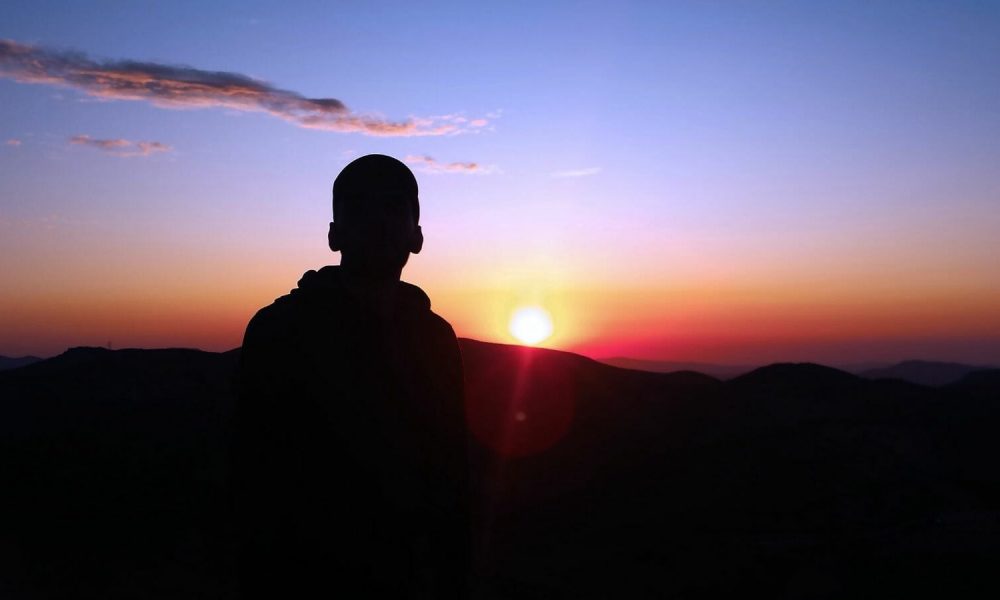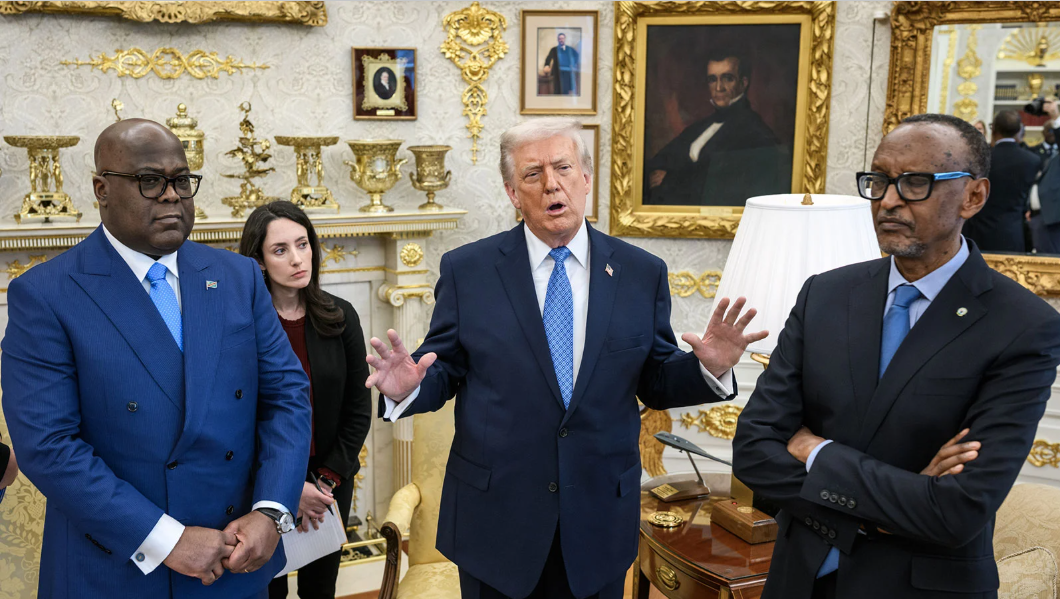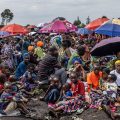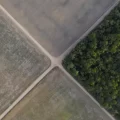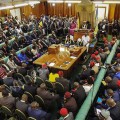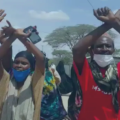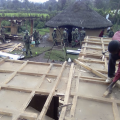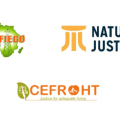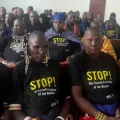Environmental and land defenders play a critical role in mitigating the effects of climate change, yet they’re often subjected to violence, harassment, intimidation, and criminalization for speaking out against land dispossession and climate abuses. Today, the climate justice and human rights organizations EarthRights International, Global Witness, Natural Justice, Sociedad Peruana de Derecho Ambiental (SPDA), CIVICUS, and the International Land Coalition released a set of recommendations for policymakers attending the upcoming COP27 climate conference in Egypt, calling on them to take meaningful steps to protect those on the frontlines of the climate crisis and to enable diverse, safe, and effective participation of civil society observers during COPs.
Recent reports from the Intergovernmental Panel on Climate Change (IPCC) warn that the world has an ever-narrowing window to avoid climate catastrophe. Meanwhile, Indigenous and frontline communities bear the brunt of the world’s climate change impacts and are increasingly threatened for speaking out against environmental abuses. Most of these threats relate to land conflicts involving climate-damaging industries – from deforestation by agribusinesses to mining, yet corporate accountability for such harms is lacking. Civil society and Indigenous peoples have also been raising concerns for years about access, participation, and freedom of assembly at UNFCCC meetings. COP27 in Egypt raises additional challenges because of the context of closed civic space in Egypt.
“States have been unable to offer environmental and land defenders the adequate level of protection and guarantees they need to safely exercise their role. Either it is apathy or incapacity, or the intervention of large power schemes, corruption, or organized crime, but States do not advance as needed in the defense of defenders’ rights. A higher recognition and incorporation by UNFCCC and COP27 of the role of defenders in facing the climate crisis is crucial to move States towards stronger protection schemes,” said Silvana Baldovino, SPDA’s Biodiversity and Indigenous Peoples Program Director.
According to Global Witness, on average, one land and environmental defender has been killed every two days since 2012. Civil society experts have also reported an uptick in efforts to criminalize defenders, enact legislation to prevent freedom of assembly, and deter activists with punitive lawsuits such as strategic litigation against public participation (SLAPPs). In September, EarthRights identified 134 cases in the past ten years in the U.S. in which the fossil fuel industry has used SLAPPs and related tactics against its critics.
“All over the world, Indigenous peoples, environmental activists, and other land and environmental defenders are working to address climate change and biodiversity loss,” said Shruti Suresh, Strategy Lead – Land and Environmental Defenders Campaign for Global Witness. “Yet they are under attack themselves facing violence, criminalization, and harassment, perpetuated by repressive governments and companies prioritizing profit over human and environmental rights. We urgently need to promote corporate and government accountability in defending the defenders and enable their participation in climate decision-making.”
These trends contradict recent international multilateral environmental agreements such as the Escazu Agreement in Latin America and the Caribbean, which came into force in 2021, and the Aarhus Convention in Europe, which recognize the role of environmental defenders in building a just transition and the need to protect them from further harm.
“The Escazu Agreement was the first treaty in the world to include specific obligations for the recognition and protection of environmental defenders,” said Natalia Gomez, EarthRights Climate Change Policy Advisor. “However, at the United Nations Framework Convention on Climate Change climate negotiations, there is very little recognition of the central role that environmental and human rights defenders play in the global response to the climate crisis. The upcoming COP27 is a historic opportunity for parties to enhance climate action by advancing the recognition and protection of environmental defenders. We cannot achieve climate justice without protecting those at the frontlines of the crisis.”
While reprisals against activists occur worldwide, experts who helped author the analysis agree that parts of Africa are particularly dangerous for environmental and human rights defenders.
“Environmental defenders in Africa have increasingly become the subject of reprisals linked to the increasing appetite for fossil fuels, unsustainable development projects, and conservation initiatives across the region,” said Eva Maria Okoth, Senior Program Officer for Natural Justice. “According to Natural Justice’s 2021 report on the African Environmental Defenders Emergency Fund, the majority of environmental defenders who were supported by the Fund received multiple threats, including death threats, threats of being arrested, and/or threats of being attacked. The report further established that eviction is the second most prominent threat faced by applicants. Other common risks documented around the world include physical attacks, Strategic Lawsuits Against Public Participation (SLAPP suits), judicial harassment, and emotional and sexual violence.”
“Environmental and Land defenders in Africa face a myriad of challenges in their efforts to demand climate action, characterized by violence, repression, harassment, and criminalization,” added Audace Kubwimana, Africa Regional Coordinator of the International Land Coalition. “As the climate crisis deteriorates, so does the violence against those protecting our land and environment. Silencing dissenting movements endangers the lives and livelihoods of vulnerable populations and dampens the significant role played by defenders in the context of the climate crisis.”
“Environmental, land, and Indigenous rights defenders in Africa are among the communities that are most vulnerable to violence and harassment at the hands of their States. Such impunity continues unabated in many countries, including Cameroon, Nigeria, Kenya, Tanzania, Uganda, and South Africa. States must ensure that environmental, land, and Indigenous defenders suffer no reprisals for legitimate activities to defend the rights of their communities,” said Dr. Paul Mulindwa, Civicus’ Advocacy and Campaigns Lead for Africa.
“The reprisals faced by land and environmental defenders in the global south, coupled with the increasing threats of climate-induced loss and damage, is an egregious violation of their fundamental human rights and untimely their right to self-determination. It is paramount that defenders, Indigenous peoples, and frontline communities are protected, and their rights expanded and safeguarded from the preparators of reprisals and climate criminals who persistently put profit before people and the environment,” concluded Katherine Robinson, Head of Campaigns, Natural Justice.
Recommendations for Parties at COP27:
- Parties must recognize the link between the climate crisis and the growing violence and repression against land and environmental defenders and take meaningful steps to protect the role of defenders in promoting ambition and enhancing climate action.
- Ensure a strong and effective Action for Climate Empowerment (ACE) action plan by including the following activities:
- Hold an ACE Dialogue on Environmental Human rights defenders, including Indigenous peoples and frontline communities, to identify the obstacles that defenders face when trying to exercise their rights to access information, public participation, and education.
- Identify gaps preventing environmental defenders to exercise access to information and participation in climate action through consultation with Indigenous peoples and frontline communities, relevant UN offices, relevant civil society groups, and other key stakeholders.
- Provide targeted recommendations for parties, inter-government bodies, and other relevant key stakeholders to take action to increase protection for defenders and enable them to exercise their rights to participate and contribute to decision-making related to climate and environmental matters.
- Ensure that human rights experts, Indigenous peoples, environmental and human rights defenders, and representatives of frontline communities can participate in the technical dialogue and roundtables of the Global Stocktake and facilitate and lead some of the discussions.
- Address the situation of environmental and land defenders during the Global Stocktake Technical Dialogue and roundtables. The outcomes of the Global Stocktake should offer specific guidance on how parties should increase their ambition to fulfill their human rights obligations. This should include guidelines to protect the rights of land and environmental defenders and guarantee their access to information, public participation, and consultation.
- Governments wishing to host COPs should enable the exercise of rights of freedom of association and peaceful assembly and guarantee safe participation by civil society and Indigenous representatives during COPs.
Read more here.
Source: Earth Rights
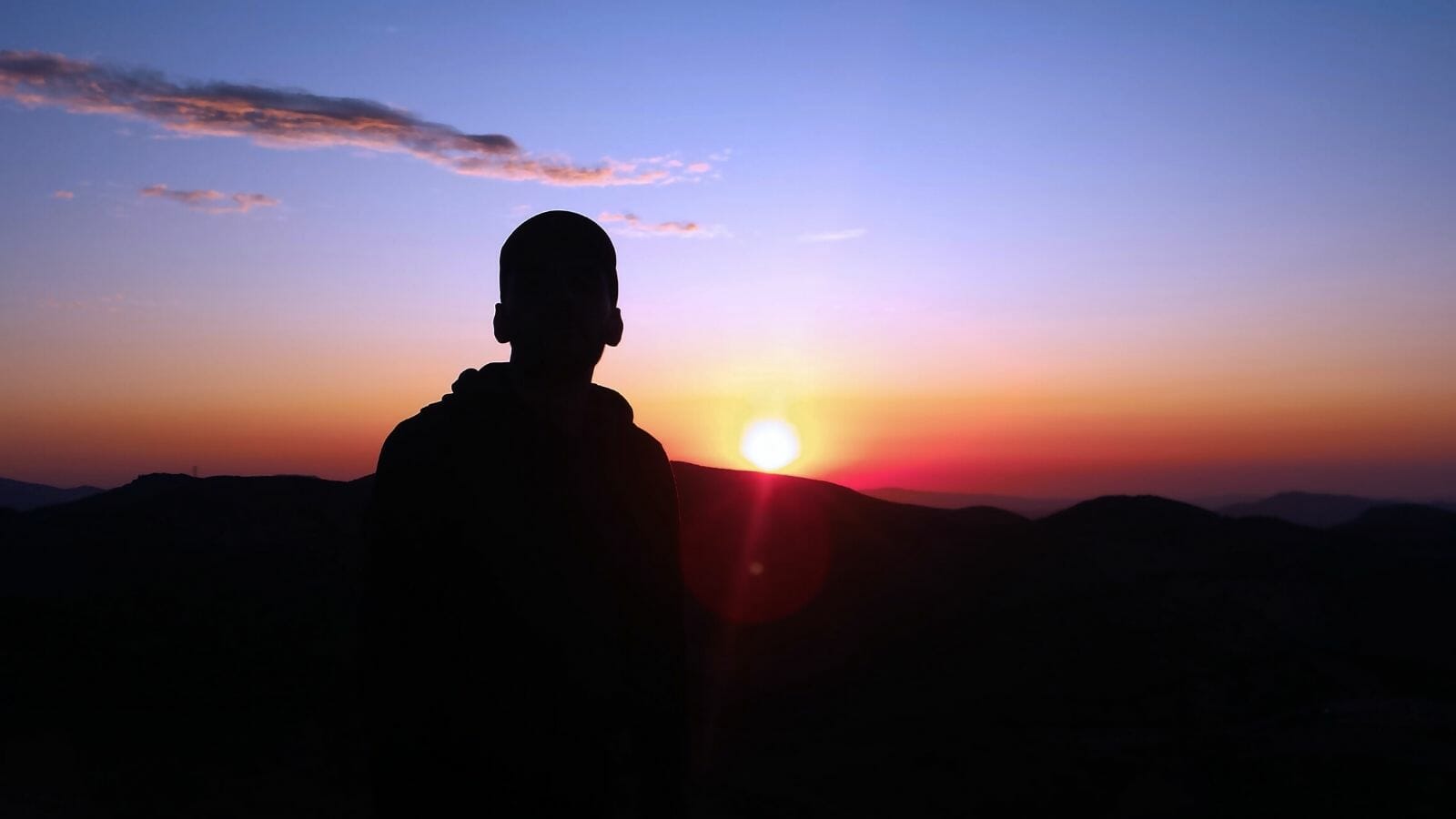

 MEDIA FOR CHANGE NETWORK1 week ago
MEDIA FOR CHANGE NETWORK1 week ago
 MEDIA FOR CHANGE NETWORK2 weeks ago
MEDIA FOR CHANGE NETWORK2 weeks ago
 MEDIA FOR CHANGE NETWORK1 week ago
MEDIA FOR CHANGE NETWORK1 week ago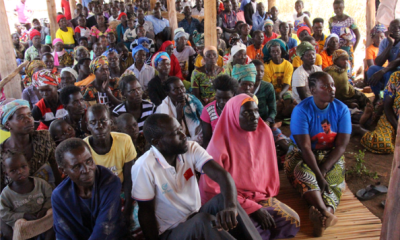
 MEDIA FOR CHANGE NETWORK1 week ago
MEDIA FOR CHANGE NETWORK1 week ago
 MEDIA FOR CHANGE NETWORK2 weeks ago
MEDIA FOR CHANGE NETWORK2 weeks ago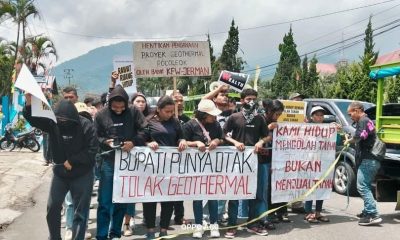
 MEDIA FOR CHANGE NETWORK12 hours ago
MEDIA FOR CHANGE NETWORK12 hours ago
